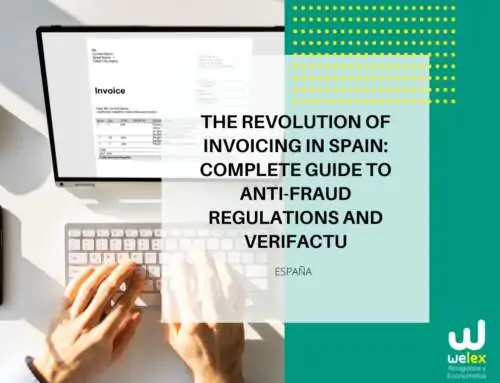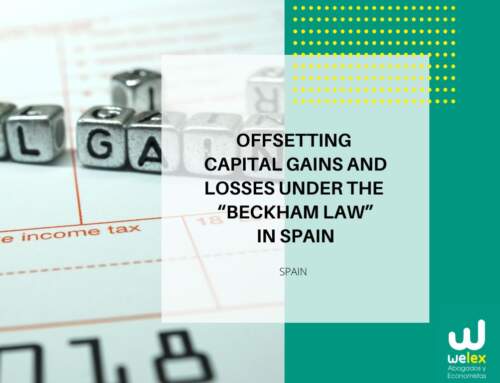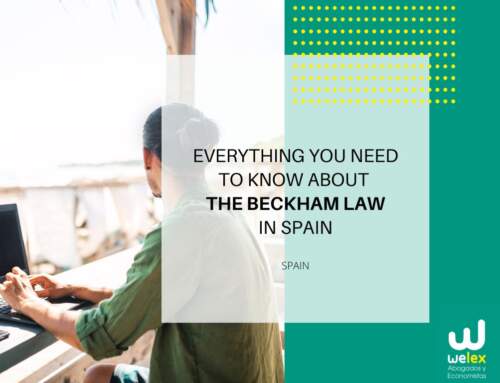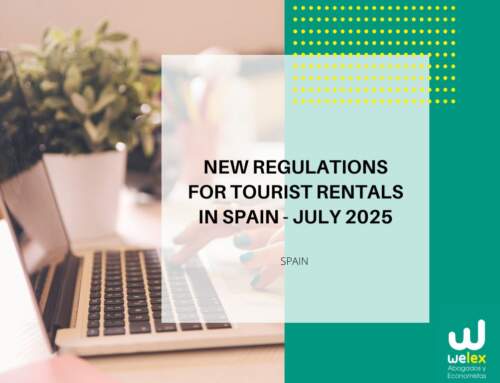Updated post about Beckham Law 2025
Discover everything about the Beckham Law and why having the legal and tax backing of Welex in Marbella is key to maximizing the benefits of this special regime.
What is the Beckham Law in Spain?
The Beckham Law in Spain is formally known as a special tax regime designed for workers, professionals, entrepreneurs, and investors relocating to Spanish territory. Despite its informal name, it offers a highly advantageous tax option for both foreigners and Spanish nationals returning after living abroad.
What is the purpose of this Law?
The main goal of the Beckham Law in Spain is to attract international talent and capital by offering more favorable taxation, whereby only income earned in Spain is taxed, rather than worldwide income as under the general regime. This key feature allows for significant tax savings and, in many cases, the avoidance of double taxation on income generated outside Spain.
It is no surprise that the Beckham Law in Spain is one of the most valued options among inbound taxpayers, as it can reduce their tax burden by almost half compared to a regular resident taxpayer with the same income.
Who is eligible for the Beckham Law in Spain? Requirements and updates (As of 2023)
To benefit from this special regime, several conditions must be met:
- Not having been a tax resident in Spain during the five tax periods prior to the year in which the relocation to Spanish territory takes place. This allows even Spanish nationals who have lived abroad during that time to apply.
- The relocation to Spain must occur as a result of one of the following circumstances:
- An employment contract, excluding the special employment relationship of professional athletes. This applies when starting an employment relationship in Spain or when the relocation is ordered by the employer (with a transfer letter). Since 2023, this also includes remote work performed via digital means, particularly applicable to those with an international telework visa.
- The appointment as an administrator of a company. If the entity is classified as a holding company, the administrator must not own 25% or more of the shares, as this would create a related entity and disqualify eligibility for the special regime.
- Engaging in an entrepreneurial activity in Spain, as legally defined and following the established procedures.
- Engaging in an economic activity as a highly qualified professional providing services to emerging companies (startups), or carrying out training, research, development, and innovation activities. In the latter case, remuneration from such activities must exceed 40% of total business, professional, and personal work income.
- Not earning income considered to be obtained through a permanent establishment (PE) in Spain. The exception to this rule applies to the activities mentioned in 2.3 and 2.4, which are compatible even if they generate PE-like income.
Frequently Asked Questions about the Beckham Law
Does it apply to freelancers or only to employees?
No, the Beckham Law in Spain does not apply to freelancers. This regime is exclusively for employees who relocate to Spain for work and have a contract with a Spanish company.
What happens if I stop working or lose my job during the special regime?
If the taxpayer stops working and does not obtain a new employment contract, the right to the special tax regime is lost.
In case of changing employers, the regime may continue as long as the new contract meets the aforementioned requirements, tax residency in Spain is not interrupted, and Form 151 is properly filed.
Main Tax Advantages of the Beckham Law in Spain
The main tax advantages under this regime are significant and focus on limited taxation:
- Employment income: taxed in Spain regardless of where it is paid or who pays it. A fixed rate applies: 24% for income up to €600,000 annually. Any excess is taxed at a rate of 47%.
- Investment income (dividends, interest, capital gains from sale of assets/rights): generally only taxed in Spain if from Spanish sources. Foreign-sourced income is exempt, which is especially beneficial for avoiding double taxation on such passive income.
- Wealth Tax: only assets and rights located in Spain are subject to tax.
- Inheritance and Gift Tax: beneficiaries (“inbound taxpayers”) are treated as residents, and thus, in the event of succession or donation, are taxed under the rules of their Autonomous Community of residence, regardless of the location of inherited or gifted assets.
- Temporary Solidarity Tax on Large Fortunes: as with Wealth Tax, only assets and rights located in Spain are subject to taxation.
Potential Risks of the Beckham Law in Spain
There is a risk of double taxation concerning investment income, such as dividends, when reclassification by the Spanish Tax Agency (AEAT) occurs.
If the AEAT reviews dividend payments from a foreign company and determines that they are being used as indirect compensation for work, it may reclassify them as employment income.
This would result in dividends already taxed in the country of origin being taxed again in Spain, causing double taxation.
To avoid this, careful planning and solid documentation are essential to demonstrate that dividends are profit distributions, not disguised remuneration.
Duration of the Regime and Extension to Family Members
The regime applies during the tax year in which Spanish tax residency is acquired and the following five tax years, totaling a maximum of 6 years. After this period, the taxpayer will be subject to the general Personal Income Tax (IRPF) rules.
Since 2023, a new feature allows the spouse and children under 25 to also opt into this special regime. They must relocate to Spain with the primary taxpayer (or before their first year ends), acquire tax residency, not have previously been residents or have a PE in Spain, and have a lower taxable base than the primary taxpayer. Additionally, they are exempt from filing Form 720.
Can the regime be extended beyond 6 years?
No, the maximum duration is 6 years, and it cannot be extended. Once the period ends, the taxpayer will be taxed as a regular resident under the general Personal Income Tax rules and must file Form 100.
How to apply for the Beckham Law?
To benefit from the Beckham Law, you must complete Form 149. This form is also used to opt out or be excluded from the regime if desired.
Furthermore, those under this regime must submit an annual income tax return using Form 151.
Contact Us for More Information
At Welex, our team of tax advisors in Marbella has extensive experience assisting inbound taxpayers and in international tax planning.
Do not hesitate to contact our tax advisory office in Marbella for further information about the Beckham Law in Spain. We would be pleased to help you evaluate your situation and guide you through the entire process to benefit from this special regime with complete legal certainty.






Social Media